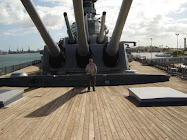Copyright 2008
As the country agonizes about dishonesty on Wall Street and in Washington, and the contentious election cycle, there is a powerful lesson from our history about the need for conciliation and coming together. The current political situation threatens to divide our country even more deeply than it was during the Vietnam era. We as a people need guidance. Our nation’s civil war provides many lessons about conciliation as well as the results of failing to reconcile. Possibly the greatest single positive example from that war was the life of Robert E. Lee.
For most Americans today, if they think of Lee at all, he was someone we read about in high school history. Perhaps we saw a portrait of him astride his horse, Traveler. To most, he is a figure from an ancient and hopelessly retrograde culture, who could not possibly have any relevance in the new millennium.
He was indeed a product of his time and his culture, a man who tolerated human slavery even as he deplored it. He led an army, which was the martial instrument of a racist and repressive society, though one which held itself to be civilized and indeed enlightened. While he did hold such a post, and indeed held it with incredible energy, creativity, and resolve; at the same time he was by all accounts kind-hearted, humble, and sincerely religious.
History itself seems mostly irrelevant to the vast majority today. “Why should we dwell on the past, when it is dead and gone? This is the Twenty First Century!” I would submit that history has exquisite relevance for this and any other generation. The people who passed before us with their combination of heroism and butchery, triumphs and foibles were, after all, made of the same stuff as you and I. The culture has changed, as have attitudes, but the human animal in most ways has not. We have the same desires, hopes, aspirations, and we all still have our prejudices, as much as we may protest to the contrary.
Lee, if he were alive today, I believe, would have a very different message from many of our contemporaries who like to wave the Confederate battle flag. Many of these “neo-Confederates” talk a lot about heritage and pride. However, the messages on both sides of the flag and heritage debates are divisive, and often sown with arrogance and resentment.
Lee was indeed a respecter of heritage, with a noble lineage and family ties to George Washington. His actions after the Civil War demonstrated, however, character of a type, which is very rare indeed. After a humiliating and devastating defeat, he refused to call out bands of diehards to fight a vengeful guerilla war in the mountains and backwoods of the South, as many of his subordinates and various firebrands remonstrated. He most certainly could have done that and it would have divided the country to this day in a way, which would make what happened in Northern Ireland look like a Sunday School picnic.
Neither did Lee attempt to cash in on his name, which was venerated almost as deity in the South. One insurance company offered him $50,000 per year (a king’s ransom in 1865) to be its President. When he protested that he knew nothing about the insurance business, he was informed that he did not need to – they just wanted to use his name. To this, he quietly replied that his name was not for sale.
He also did not become bitter and lash out verbally at his former foes. Instead, he took the helm of the nearly defunct Washington College in Virginia and spent his last years in training the young to deal with the realities of the new United States of America, building what today is Washington and Lee University.
He urged his former officers and men to put aside hatreds and return to their farms and shops and to rebuild the society, which had been destroyed, to put behind them the bloody and bitter struggle. He was a voice of conciliation and forgiveness. He neither said nor did anything to encourage the voices of discord. He put his Christian faith into practice under the most difficult of circumstances.
It is safe to assume that were Lee alive today, he would counsel the same in our society. He would encourage the races to be done with hatred and to move on in harmony; to cease and desist from the continual one-upsmanship that pervades our social and political life today; to give more and demand less.
He was a man who subsumed his own selfish desires and ambitions to do his duty as he saw it. As war became imminent, he rejected the honor of leading the Union Army, which had all the advantages necessary for success, to cast his lot with his countrymen and kin in a dangerous and desperate struggle, because he could not lift his arm against his own. It is highly probable, given his considerable abilities, that had Lee accepted the command of the Union Army, the war would have been shortened by two years or more, and that Lee would occupy a place in history alongside Washington and Lincoln. Lee was no fool; he knew this very well. Still he chose what he believed to be his duty over self-promotion.
This is a key for Americans today. Our commercial and capitalist society, with all its advantages still encourages self-interest and greed at the expense of compassion and generosity. Our competitiveness tends to stifle the higher impulses to conciliation, which many consider a sign of weakness. In fact, it takes far greater strength to conciliate than to confront, to forgive than to hate. It is easy to show hatred and lack of compassion. It takes strength to reach out.
I believe we should learn from our past, take the best from history and from its protagonists, and use it to move humanity beyond the petty hatreds of race, class, or region. Having studied the life of General Lee, I believe there is very much about him which is truly exemplary, a pattern for modern man.
It is patently criminal that in our effort toward political correctness, we have virtually expunged his name from public school history books. I can hear the naysayer’s chorus now. “He should have fought a defensive war...he had slaves...he alone was responsible for losing the war...he should have done this and he should have done that, etc.”
Intentional, malicious criticism of Lee is becoming sport among some so called scholars, as they sit on their duffs in their comfortable Monday morning quarterbacking chairs, whilst ensconced securely within their tenures. The vast majority of them could not lead a group in silent prayer; much less lead a rag tag army to immortality on the battlefield, as did Lee.
Spare me the jealous character assassination. The truth is that Lee was one of the best military commanders our country ever produced. More importantly, after the tragic and untimely death of Lincoln, and after the war was over, he did in fact do more to promote harmony in this country than anyone of that era.
We owe a supreme debt to him for that, not insipid criticism 135 years after the fact. Heroes are in short supply, we need to revere the greatest and learn from them, not excoriate them for their failures. However, Lee was far nobler than I, and he would have said to ignore the carping critics and move on with the work at hand. He would have said to build bridges, not entrenchments. He would have said to put duty above self. Now there is truly a lesson for today.
Tuesday, July 29, 2008
Dianne Salerni's Features
The talented author of High Spirits: a Tale of Ghostly Rapping and Romance, Dianne Salerni, posts features of various IAG authored books on her web site. It is most interesting and informative. You can check the work of the talented Ms. Salerni and the IAG authors (including this one) at http://www.highspiritsbook.com/Spotlight.htm.
Adios, Minnine Mouse
It was a sweet kiss
atop my head
the cartoon lips and
the big sounding
smack
as the shutter clicked
and Minnie draped her
warm arm around me
and bizarre does not begin
to describe the feeling
when you are vamped
by a cartoon mouse
impressionist
dressed up
in crinoline
and absurdly large
mouse head
the big bow in front
like an oddly
shaped hat
and the short girl
in the costume
generating heat
from her exertions
impersonating the girl friend
of the iconic mouse.
Then off she goes to the next table
and I marvel at her energy
and her persistent good cheer
in the face of hundreds of
squirming, scrambling, pinching
children
and one grandpa
kneeling for a picture
who was strangely moved
by the silly kiss
and the friendly goodbye.
atop my head
the cartoon lips and
the big sounding
smack
as the shutter clicked
and Minnie draped her
warm arm around me
and bizarre does not begin
to describe the feeling
when you are vamped
by a cartoon mouse
impressionist
dressed up
in crinoline
and absurdly large
mouse head
the big bow in front
like an oddly
shaped hat
and the short girl
in the costume
generating heat
from her exertions
impersonating the girl friend
of the iconic mouse.
Then off she goes to the next table
and I marvel at her energy
and her persistent good cheer
in the face of hundreds of
squirming, scrambling, pinching
children
and one grandpa
kneeling for a picture
who was strangely moved
by the silly kiss
and the friendly goodbye.
Friday, July 18, 2008
Death is a Dancer
Copyright 2008
The necrotic spectre leaps
pale as breasts
in the moonlight
seeking animate creation
from which to suck the breath
Catlike in the cradle
eyes bright gold and slitted
peeking round tomorrow for
his victims of the now
Point to point in circles
uncaged in war to prey
Death is never idle
a dancer midst the fray
The necrotic spectre leaps
pale as breasts
in the moonlight
seeking animate creation
from which to suck the breath
Catlike in the cradle
eyes bright gold and slitted
peeking round tomorrow for
his victims of the now
Point to point in circles
uncaged in war to prey
Death is never idle
a dancer midst the fray
Sunday, July 13, 2008
Versa, It's Vice
Copyright 2008
the words are my puppets
i jerk ‘em around
they stand at attention
or lie flat on the ground
my pen is a bullwhip
to lash lazy ones
i brook not one sluggard
keep ‘em under the gun
but as I close watch
the words as they dance
and laugh and sing smartly
of fate and romance
there seems a small problem
befuddled i see
to my consternation
the real puppet’s me
the words are my puppets
i jerk ‘em around
they stand at attention
or lie flat on the ground
my pen is a bullwhip
to lash lazy ones
i brook not one sluggard
keep ‘em under the gun
but as I close watch
the words as they dance
and laugh and sing smartly
of fate and romance
there seems a small problem
befuddled i see
to my consternation
the real puppet’s me
Wednesday, July 2, 2008
Dianne Salerni's Featured IAG Books
Author Dianne Salerni is featuring different books each month on her web site, based on various themes.
"I have posted the IAG Spotlight for July on my website, featuring books by Al Past, Marva Dasef, Linda Tuck-Jenkins, Amanda Hamm, Joseph and David Rhea, Robin Reed, Ann Keller, Lee Cross, and Sylvia Engdahl."
Check out these great IAG authors at http://www.highspiritsbook.com/Spotlight.htm.
"I have posted the IAG Spotlight for July on my website, featuring books by Al Past, Marva Dasef, Linda Tuck-Jenkins, Amanda Hamm, Joseph and David Rhea, Robin Reed, Ann Keller, Lee Cross, and Sylvia Engdahl."
Check out these great IAG authors at http://www.highspiritsbook.com/Spotlight.htm.
Tuesday, July 1, 2008
The Last One
My Uncle Norman Yelton passed away today. He was the last of his generation in our family, the last of fourteen siblings. I wrote this poem in his honor.
Copyright 2008
His hands shook a little as he lit his cigarette
his gnarled fingers skillfully flipping the lighter
with a click
A smoke cloud blew upward and
he closed his eyes in pleasure
“Been smokin’ sixty two years
and loved every one of ‘em.”
Then he spoke of the past with a look in his eye
that told me he saw seventy years gone
like it was yesterday.
Days when Roosevelt was President
and swing music was new
and folks rallied around
to defeat a primal evil
and save the world.
He told of getting sick on the victory ship
in the North Atlantic
and how the German torpedo missed them
by fifty yards.
Of how the landing at Normandy
took five of his friends
their lifeblood leeched out
on that grim and sandy shore.
And how they fought the Nazi’s
and the plink of a round against his helmet
of twisting his ankle
and then marching fourteen miles
of sleeping in the mud
for eight straight nights
of being spattered by the brains
of his platoon sergeant
in front of a little church in France
when the Germans opened up with their Mausers.
He killed three of them,
said it was the first time he had told anyone.
He was sick with the flu for two weeks in November
confined to his bed in the field hospital
they told him he almost died of exposure
but he went back as soon as he could
caught up with his comrades at a bridge
where one German tank blocked the road
and Sammy Nelon of Huntsville swam across,
climbed on the tank
and shot the driver with the lieutenant’s .45.
Then he slung a satchel charge into the treads
but it went off before he could get clear.
Sammy was nineteen.
A single tear trickled down.
He looked out the window at the blowing leaves
“This’ll be my last winter. Will you see the antifreeze gets changed?”
A practical people, this greatest generation.
The house was quiet, just the old man and me.
I nodded yes and he nodded too.
The last of his family, the rest all gone
and he alone just waiting
for the final reunion.
Copyright 2008
His hands shook a little as he lit his cigarette
his gnarled fingers skillfully flipping the lighter
with a click
A smoke cloud blew upward and
he closed his eyes in pleasure
“Been smokin’ sixty two years
and loved every one of ‘em.”
Then he spoke of the past with a look in his eye
that told me he saw seventy years gone
like it was yesterday.
Days when Roosevelt was President
and swing music was new
and folks rallied around
to defeat a primal evil
and save the world.
He told of getting sick on the victory ship
in the North Atlantic
and how the German torpedo missed them
by fifty yards.
Of how the landing at Normandy
took five of his friends
their lifeblood leeched out
on that grim and sandy shore.
And how they fought the Nazi’s
and the plink of a round against his helmet
of twisting his ankle
and then marching fourteen miles
of sleeping in the mud
for eight straight nights
of being spattered by the brains
of his platoon sergeant
in front of a little church in France
when the Germans opened up with their Mausers.
He killed three of them,
said it was the first time he had told anyone.
He was sick with the flu for two weeks in November
confined to his bed in the field hospital
they told him he almost died of exposure
but he went back as soon as he could
caught up with his comrades at a bridge
where one German tank blocked the road
and Sammy Nelon of Huntsville swam across,
climbed on the tank
and shot the driver with the lieutenant’s .45.
Then he slung a satchel charge into the treads
but it went off before he could get clear.
Sammy was nineteen.
A single tear trickled down.
He looked out the window at the blowing leaves
“This’ll be my last winter. Will you see the antifreeze gets changed?”
A practical people, this greatest generation.
The house was quiet, just the old man and me.
I nodded yes and he nodded too.
The last of his family, the rest all gone
and he alone just waiting
for the final reunion.
Subscribe to:
Posts (Atom)







